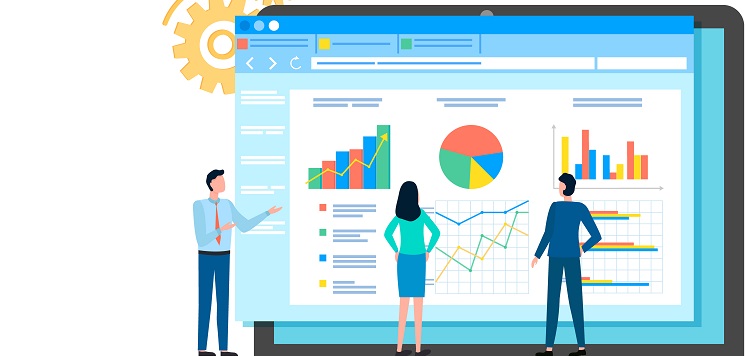In the modern world, data is the currency that drives businesses and organizations. Every organization today is looking to harness the power of data to make better-informed decisions. However, the question remains, how can data be utilized to make insightful and informed decisions? The answer to this question lies in the adoption of Contextual Decision Intelligence (CDI), a revolutionary technology that transforms data into actionable insights.
The Necessity of Being Data-Driven
In today’s ever-evolving business landscape, being data-driven is no longer an aspiration, but a necessity. Organizations that leverage data are better equipped to make informed decisions and remain competitive in their respective markets. By embracing data-driven decision-making, organizations can gain a competitive advantage, enhance operational efficiency, and optimize their resources.
The Importance of Responsible and Holistic Decision-Making
While it is critical for organizations to be data-driven, they must also ensure that they make responsible and holistic decisions. Responsible decision-making considers ethical, social, and environmental considerations, while holistic decision-making takes a comprehensive view of the organization’s systems, processes, and stakeholders. This approach eliminates bias and ensures that decisions are informed by all available data.
Contextual Decision Intelligence (CDI) is an emerging technology that addresses the challenges of responsible and holistic decision-making by providing a contextual view of data. CDI pulls disparate data sources into a single, integrated platform that provides an enriched, contextual view of data. This enables organizations to gain deeper insights into their operations, customers, and stakeholders, facilitating better-informed decisions.
Building a Strong Data Foundation through CDI
CDI allows organizations to transform their data, which may contain inconsistencies or errors due to manual inputs, into accurate and complete data that can be trusted. This foundation serves as the basis for strong, data-driven decision-making across the organization, whether strategic, tactical, or operational decisions.
ML and AI for Improved Decision-Making
Furthermore, CDI facilitates the application of machine learning (ML) and artificial intelligence (AI) to automate and enhance decision-making. By leveraging the power of ML and AI, organizations can derive insights, discover patterns, and identify opportunities that would be difficult or impossible to achieve through traditional methods.
Emergent Technologies and Decision Intelligence
Companies like Quantexa are providing public-sector decision-makers with Decision Intelligence to make strategic, tactical, and operational decisions that are faster, more accurate, and better-informed across every agency. Quantexa’s Decision Intelligence Platform is live in over 70 countries, processing billions of records worldwide for the UK government, HSBC, Standard Chartered Bank, Bank of New York Mellon, and many others.
Critical competencies for a disruption-ready and resilient organization include the ability to identify, prioritize, and model decisions for improvement (i.e., decision intelligence). Decision-making processes must be agile, transparent, and data-driven to adapt to rapidly changing markets and shifts in customer expectations.
Choosing a Partner for Building a Data-Driven Organization
To establish a data-driven organization, it’s essential to partner with a technology provider that can help you build data and analysis communities and develop data engineering as a discipline. This approach increases data literacy, encourages collaboration, shares learning, and develops sensitivity to ethical challenges.
Quantexa’s Decision Intelligence Platform and its Benefits
Quantexa’s Decision Intelligence platform offers a comprehensive solution for organizations aiming to build a data-driven culture. The platform connects billions of data points across internal and external data sources, providing a single view of data hub enriched with intelligence. It provides knowledge about the networks between people, organizations, and places, ultimately enabling organizations to make accurate and insightful decisions based on all available data. This approach helps businesses to grow, achieve cost efficiencies, and also improve risk management.
As the business world becomes increasingly complex, the need for data-driven decisions is more critical than ever. CDI offers a transformative approach to decision-making, enabling organizations to make informed decisions based on all available data. By partnering with a technology provider like Quantexa, organizations can establish a data-driven culture that builds a strong foundation of trust, responsibility, and transparency. With CDI, organizations can unlock the full potential of their data and make better, more informed decisions to achieve their strategic goals.

